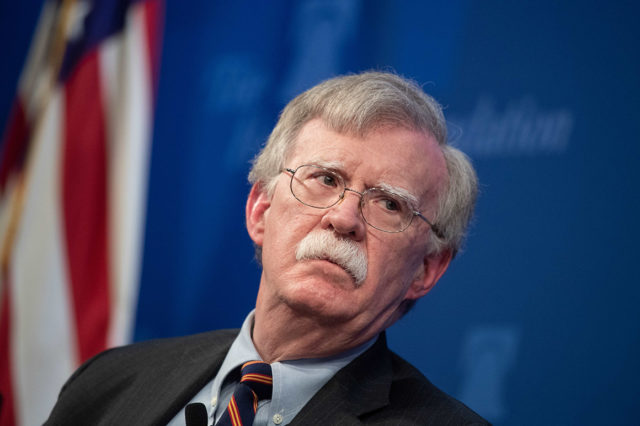U.S. National Security Advisor John Bolton and Secretary of State Mike Pompeo headed to the Middle East this week to clarify President Trump’s Syrian exit strategy, reassuring allies that the administration would not withdraw unconditionally. President Trump inherited some 2,000 American troops in Syria, many of whom are special forces operators or deployed with Kurdish fighters at forwarding command posts to fight the Islamic State group (ISIS).
Over the past few years, Washington has relied heavily on Kurdish militias, including the People’s Protection Units (YPG), to conduct the majority of ground operations, clearing and holding territory ISIS territory. However, Turkey has long considered the YPG to be allied with Kurdish separatists, calling the group terrorists and opposing the expansion of its influence. With Washington’s new posture in the region, the Kurds could get squeezed between the interests of two much larger powers.
On the first leg of his trip, Bolton met with Israeli Prime Minister Benjamin Netanyahu and other top security officials in Jerusalem. During closed-door talks, Bolton reportedly said that the United States had no timeline for its withdrawal of forces from Syria and pledged that ISIS would be completely defeated first. Publically, the national security team also reaffirmed that Washington would continue to help Israel counter Iranian aggression in the region and that Turkey would need to agree not to attack allied Kurdish forces. Mr. Bolton and the Prime Minister also talked about the effects of Chinese investment in the port of Haifa as well as U.S. recognition of Israeli sovereignty in the Golan Heights.
Meanwhile, Turkish President Recep Tayyip Erdogan penned a New York Times op-ed signaling his distaste for America’s intention to protect the Kurds in Syria. Upon arriving in Ankara, Bolton met with his counterpart, Ibrahim Kalin, complaining about the article and some of its more dubious claims. Erdogan, seeing Bolton as a spoiler for adding conditionalities to an otherwise quick with the withdrawal of U.S. troops, refused to take a meeting with the national security advisor. The Turkish President suggested that he would instead call President Trump himself.
On January 8, Secretary of State Mike Pompeo began his own Middle East tour, making an unannounced stop in Baghdad, Iraq, and meeting with Iraqi leaders. Pompeo told reporters that progress had been made addressing Turkey’s objections to a Kurdish stronghold in Syria and that Ankara had made unspecified “commitments” to not attack allied Kurdish forces. The Secretary had been previously quoted as saying that, “ensuring that the Turks don’t slaughter the Kurds” is a U.S. goal in the region. Pompeo will continue on to other friendly capitals including Erbil, Amman, Cairo, Abu Dhabi, and Riyadh.


